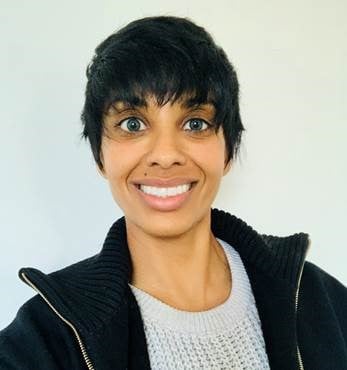When Dr Sarika Gupta was a medical resident, she was offered the opportunity to do some voluntary work in Papua New Guinea (PNG) with Rotary Australia International. She was passionate about women’s health and, as she came to learn in her Master’s of International Public Health at the University of Sydney, maternal mortality and morbidity in PNG was high. Lack of resources was one of the many reasons obstetric care was failing in these regions and Rotary Australia were co-ordinating a prevention program: Sarika would be part of a team of volunteers to provide education in contraceptive implant use to women in rural communities in PNG; where information and access to reliable contraception was scarce and the number of unwanted pregnancies was high.

Dr Sarika Gupta
Her first engagement was in 2013, with an isolated rural community on Karkar Island. While in the field, it dawned on her; this community had the perfect characteristics to carry out a longitudinal study. So, she decided to do a PhD at the University of Sydney.
‘I responded to the opportunity. The foundation of my PhD stemmed from my first trip, where we introduced contraceptive implants. Then I returned at various time points to see what impact they had had,’ says Sarika.
Dr Gupta’s study aimed to investigate the impact of contraceptive implants on maternal health in rural communities in PNG, comparing specific health statistics pre and post introduction of the implant devices. The study also aimed to identify any potential social and cultural barriers that may prevent ongoing use of the implants.
‘The advantage of the implant is that women get three to five years of effective and reliable cover without having to rely on external resources. The first step of the study was to demonstrate whether the implants had an objective impact on maternal and child health.’
Sarika reviewed seven years of hospital data to record morbidity and mortality indicators. Her team looked at the rates of haemorrhage, hospital readmission, sepsis, low birthweight and prematurity over time. Effectively, they noticed a significant reduction in these following the introduction of the contraceptive implants. They also noticed that the number of women with high parity and short inter-pregnancy intervals reduced. In the absence of any other major health interventions in the area, they had enough evidence to draw a conclusion: their intervention had been effective.
‘It has always been my interest to look at postnatal care because that’s the best window to educate women to make choices that will positively impact upon subsequent pregnancies. I really want to break the educational barrier that’s keeping women at the margins so that they feel empowered to make decisions about their sexual and reproductive health. If we can replicate the findings from Karkar in other rural communities, both in PNG and beyond, we may be able to encourage healthcare authorities to expand access to reliable contraception as part of a systematic strategy to reduce maternal morbidity and mortality.’
The next challenge for Sarika is to assess whether the contraceptive implants have acquired sustainable cultural acceptance.
‘It’s one thing to have objective evidence that something works, but the method needs to be accepted by the community. That’s the second part of my PhD, which I’m studying through a qualitative approach.’
In 2017, Sarika received a RANZCOG/NSW Regional Committee Trainee Research Grant to continue with her studies. Today, her aim is to analyse the acceptance of contraceptive implants after five years of implementation. She is currently holding focus group discussions and carrying out in-depth interviews with members of the Karkar Island community.
‘Once we have a comprehensive understanding of how the device has worked, we’ll hopefully be able to develop a strategy for national health authorities to distribute it more widely.’
Sarika has published her findings in ANZJOG and Contraception and she is currently working on other upcoming publications.
‘Even though pursuing a PhD in the middle of training has been challenging at times, it’s taught me that it is possible to advocate about the global challenges that really interest you. For me, it made my whole O&G training experience much more meaningful.’



